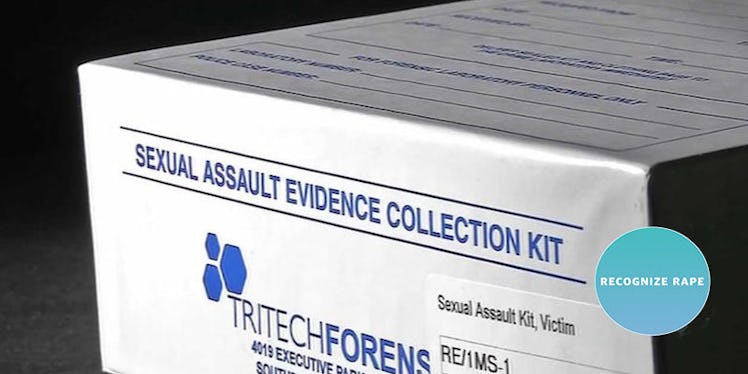
Why Testing Rape Kits Would Save Us Millions In Fight To Catch Serial Rapists
Hundreds of thousands of rape kits are left sitting around in storage — or worse, destroyed — without being tested.
The reality is, it's going to cost money to get these kits tested.
But, a new study found it's also going to save a ton of money in the long run.
Rape kits are taken when a victim receives one at a medical service center right after the attack happens (it's recommended within 72 hours of an attack). The kit collects information, including DNA samples, which can be used in investigations.
Testing the kits is extremely useful in finding serial rapists, or people who attack more than one person. But kits are often left untested. This means serial rapists can go on finding new targets without getting caught.
Researchers at Case Western Reserve University in Cleveland, Ohio analyzed local data to see just how much money finding serial rapists by testing these kits would save the community.
About 4,400 previously untested kits in Cuyahoga County, Ohio were recently tested. They found that about 25 percent of rapists went on to commit another assault.
Had a kit been tested, however, these assailants might have been caught before they went on to attack someone else.
Sexual assault does not just harm a survivor physically and emotionally, it also causes financial harm.
A survivor loses, on average, over $200,000, the researchers determined.
This includes tangible factors like medical bills, property damage or theft and lost earnings due to injury. This also includes intangible factors like psychological damage and decreased quality of life. The intangible factors cost was based on awards juries have given.
There were about 4,400 victims' rape kits that went untested. Altogether, that makes $885.8 million dollars lost.
Meanwhile, testing rape kits and conducting investigations also costs money. In total, for all 4,400 kits, it cost about $9.6 million.
This $9.6 million in testing will save millions of would-be victims and the community by finding serial offenders. In total, testing the kits and stopping serial offenders from future attacks will save the community $48.2 million.
Rachel Lovell, one of the researchers, said this shows,
These efforts are not only right, but they're working in the long run.
She told Elite Daily it was frustrating to do this analysis, as she had to see the numbers on just how many people were harmed by serial offenders — people who could have been stopped, if testing kits had been a priority. She said,
It's not really taken seriously. You can see that through resources.
Detectives are the ones who decide whether or not to test a rape kit. But they also don't always believe victims and can easily decide to stop investigating a case, leaving the kit untested.
Lovell said,
Had we tested the kit or believed the victim — look at all the women that were victimized and we could've done something about it.
Instead, the kits went untested and serial offenders committed more crimes, hurting more people.
Lovell hopes this study will prove that testing kits should be a priority, because it does save the community a lot of money — in addition, of course, to preventing more rapes.
Citations: Case Western University, NBC